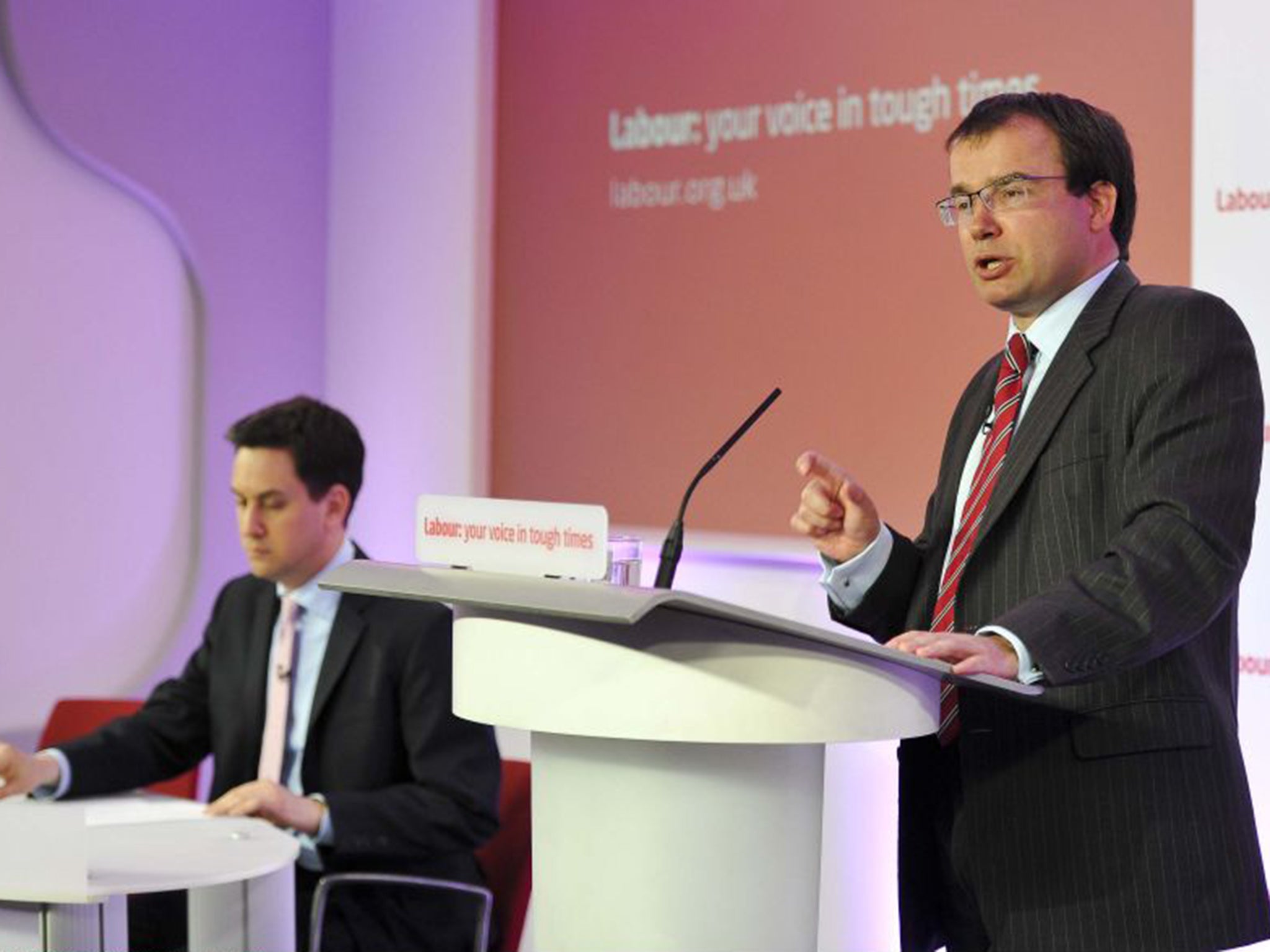Labour urged to set up super ombudsman to give greater transparency and power to consumers
US-style Consumer Champion would replace 17 different watchdogs

Consumers who feel ripped off by energy firms, high-street stores and mobile phone companies would be able to direct their complaints at a single, all-powerful watchdog – rather than battle with as many as 17 different ombudsmen as they do now – under a manifesto pledge by the Co-operative Party.
The party, which is trying to persuade Ed Miliband to take up its ideas for Labour's general election manifesto, said the 17 different ombudsman schemes would be abolished and replaced by one easy-to-use US-style Consumer Champion to give greater transparency and power to consumers.
The Consumer Champion Ombudsman, in addition to providing a clear process for individuals' complaints, would have extra "hard powers" licensed by the secretary of state, including the ability to take up class actions on behalf of consumers. The super ombudsman would also be required to educate the public about its rights and how to complain if those rights have been infringed.
It is estimated that consumers in the UK collectively lose £6.6bn from unfair trading and bad service and a proportion of that is because they are not aware how to negotiate myriad ombudsman schemes set up for different industries. The 17 relating to the private sector include schemes for financial services and energy, and two separate schemes for the internet and communications industry. There are even ombudsmen for furniture removal and double glazing and conservatory mis-selling.
The policy will be one of the major ideas in the Co-operative Party's manifesto for 2015, which will be launched in the new year. The party says its manifesto is already influencing Labour thinking ahead of the general election.
The Co-operative manifesto will also call for the creation of a legal framework to support the next generation of price comparison sites, which will give greater power to consumers to collectively bargain for lower or, in some cases, more ethical or environmentally friendly deals.
Apart from the sheer number of ombudsman schemes, which the Federation of Small Businesses has condemned as "like confetti" and giving greater protection to larger firms, there is also a problem with consistency and overlap. Some ombudsman schemes and complaint services have a legal framework while others are voluntary and operated by the relevant industry. Ombudsman Services is an independent umbrella organisation for some of the existing schemes, covering energy suppliers, some mobile phone networks and property companies.
Gareth Thomas, Labour MP and chairman of the Co-operative Party, said: "There has been a revolution in how we shop as we spend more online and less on goods and more on services. What we need now is a revolution in consumer protection.
"Having 17 separate outdated ombudsman schemes isn't just bad for consumers but also bad for business. While the Consumer Rights Bill includes welcome changes it doesn't go far enough. We need a single co-operative based and proactive Consumer Champion Ombudsman that would have the power of collective redress to challenge and resolve bad practice on behalf of all consumers – not just those able to navigate the current complex system. We can and should learn from a number of other countries including the US, the Netherlands and Denmark. It's time we stood up for consumers."

A report by Ombudsman Services published earlier this year said it resolved more than 19,000 disputes in 2013 but estimated that around 40 million complaints went unheard, either because the complainants were unaware of the watchdog or did not believe the issues would be resolved. The majority of complaints resolved by Ombudsman Services were related to energy companies, shops and internet firms.
Separately, a new wave of price comparison sites, known as Next Generation Intermediaries or NGIs, is expected to give greater power to consumers who can negotiate better deals for themselves, rather than simply shopping around for what is on offer. An NGI collects information from individual consumers or "consumer clubs" about what they require – for example a greener energy deal – and then matches providers with their needs through collective bargaining. In Australia, one in 14 consumers is a member of an NGI.
The Government says consumers stand to gain, collectively, between £150m and £240m a year from NGIs. Yet the Co-operative Party manifesto calls for a robust legal framework in which NGIs should operate, including protecting individuals' data and privacy, ensuring each NGI is independent and preventing them from charging exorbitant fees.
Stella Creasy, Labour and Co-operative MP for Walthamstow and shadow minister for competition and consumer affairs, said: "Too many consumers get ripped off or get a raw deal. Britain needs more powerful consumers – both as individuals and collectively – to turn this around.
"I'll be working with the Co-operative Party to campaign for a legal framework that will allow safe and transparent release of information and data. People will then be able to come together to create co-operative consumer 'clubs' to negotiate better deals."
Co-op sets out election stall
With the general election on the horizon, the Co-operative Party is striking out with its own manifesto of eye-catching, consumer- and grassroots-focused policies. The Co-operative Party is affiliated to Labour, with 32 MPs, including shadow Chancellor Ed Balls, representing both parties.
But in the new year it will launch its own distinctive wish list, including a credit union aimed at military families, increased membership of mutuals generally, and allowing community energy projects to directly supply electricity to homes for the first time.
The Co-operative Party, which has been linked to Labour since 1927, receives 70 per cent of its funding from Co-op supermarkets and funeral parlours.
Jane Merrick
Join our commenting forum
Join thought-provoking conversations, follow other Independent readers and see their replies
Comments
Bookmark popover
Removed from bookmarks